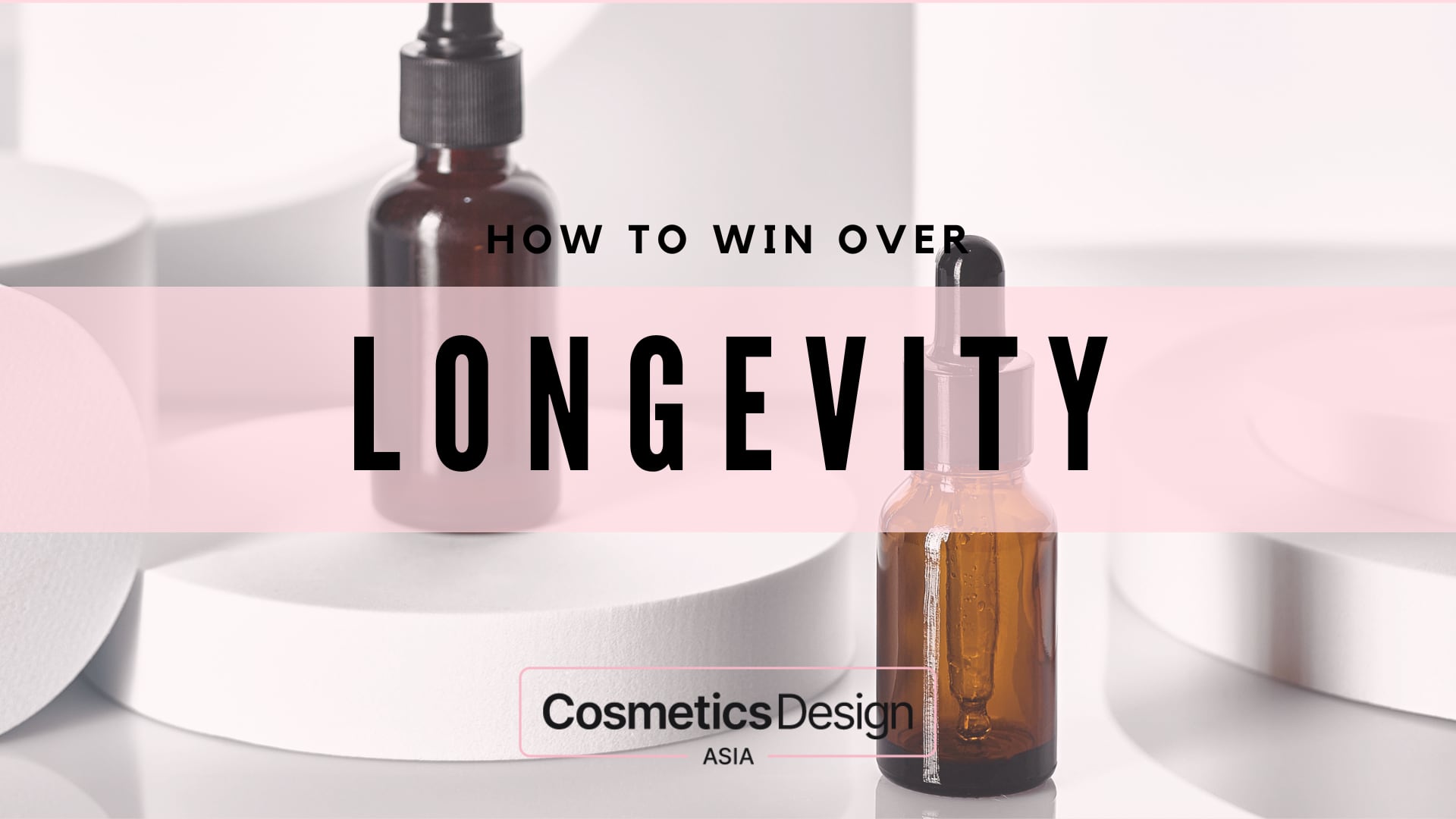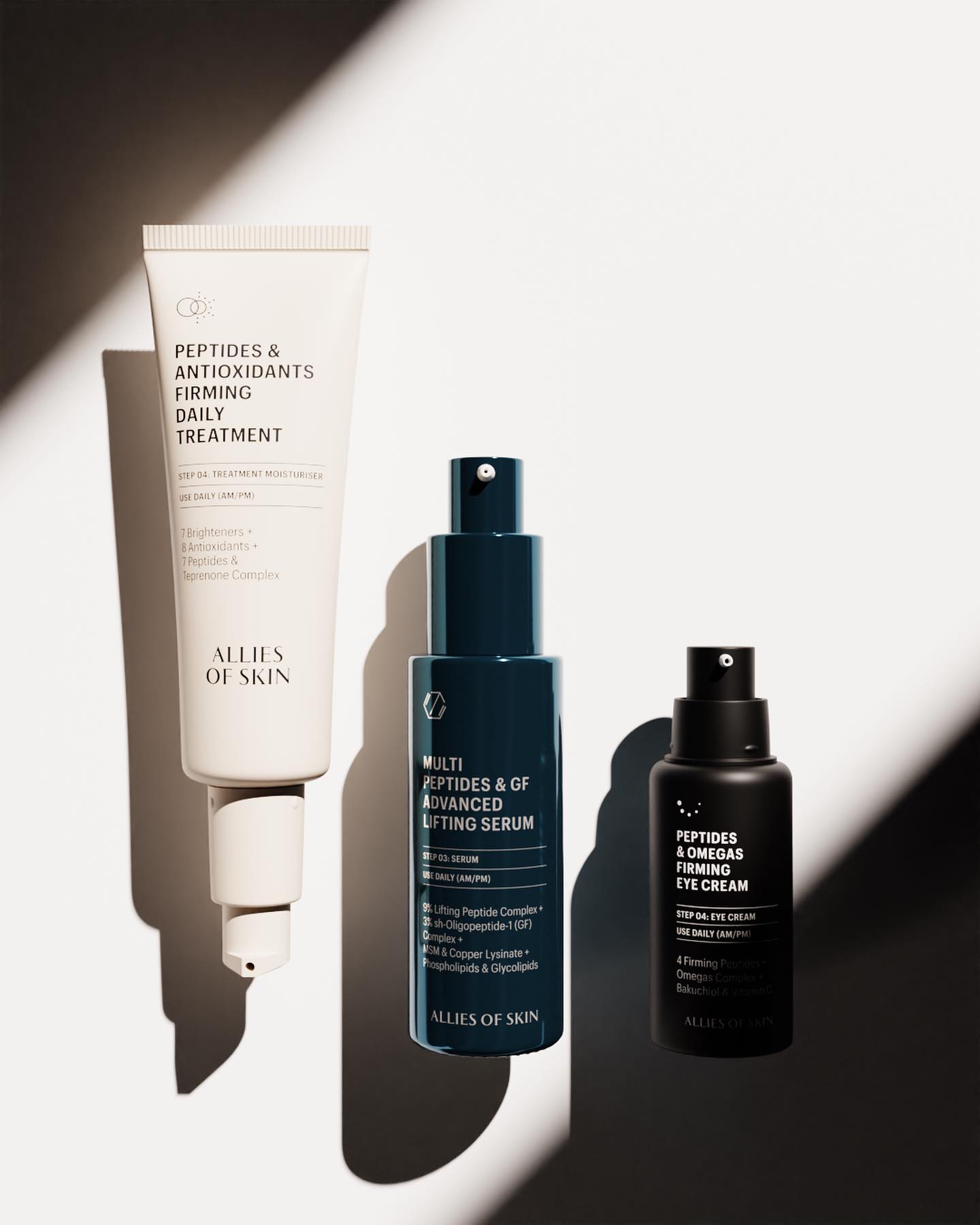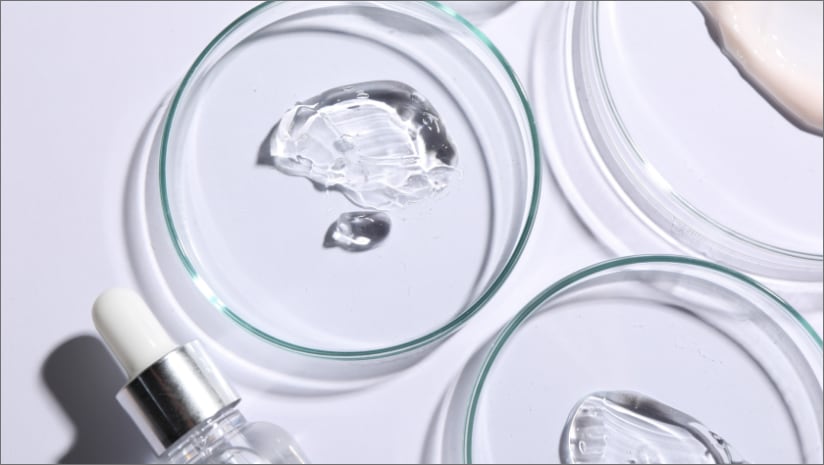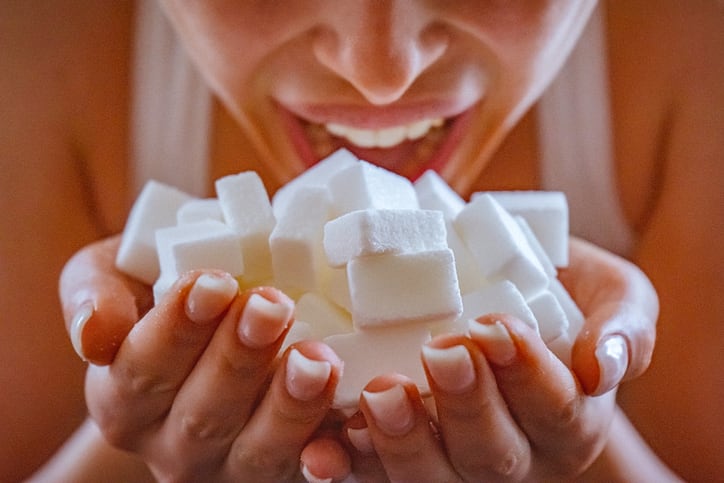The desire to live forever has always been a part of mankind’s history. Myths and legends from various cultures are peppered stories about the quest to find the fountain of youth. Depending on cultures, it could be the elixir of life, the peaches of immortality, or ambrosia of the Gods.
With the help of science and medicine, modern humans have very successfully managed to extend life expectancy. However, with a steeply rising global population that is getting older, longevity has become a subject of paramount importance, concerning not just one but all generations across demographics.
While we may have many have more years on the clock, it does not mean we have slowed down the process of ageing.
“Life expectancy has been rising globally but consumers are not necessarily physically healthier as they grow older,” said Kim-Davy Hoeu, a new product innovation and development expert.
As priorities shift from how long we live to how well we live, we have ushered in an era where healthy living and resilience has taken over the spotlight.
Over the years in the beauty industry, we have seen more people celebrating ageing as a natural process and are less bothered about individual lines on the skin. The perspective shift to self-acceptance has driven people to focus on ageing gracefully.
These shifts have evolved into the longevity movement. Consumers have taken a proactive approach to ageing, which has given rise to a slow ageing skin care routine, biohacking, cellular rejuvenation, and medical aesthetic treatments or ‘tweakments’.
Beauty with longevity in focus is eclipsing the traditional anti-ageing approach, where people are encouraged to reverse the signs and eradicate evidence of age. While they are related, but distinct from each other.
“Anti-ageing is sort of physical. I would like to think longevity is not just that. It’s about optimising your physical, your mental and your emotional wellbeing as you age. It’s about preventing decline and maintaining vitality,” said Roshini Sanah Jaiswal, founder and CEO, neurocosmetics brand JustHuman.
“[Longevity] is the quest for a longer healthier life… It’s not just adding years to your life but adding life to your years. It’s living a healthier and even more fulfilling life while ageing,” said Hoeu.
Longevity science: Focusing on skin
From a health perspective, skin is often neglected. People often forget it is an organ, and our largest organ in fact. As an organ, our skin’s physical appearance can reflect the state of our health. And the state of our skin can affect our mental wellbeing. Its importance cannot be overstated.
“Skin is the missing organ in longevity science,” said Luc Aguilar, R&D Director, Microbiome, Exposome and Longevity Domains, L’Oréal Group.
In recent years, the French beauty giant has been focused on longevity science after identifying it as a major gamechanger in beauty.
“Longevity was a trend in the past few years and now it’s really a revolution. And that’s brought a shift on the R&D level,” Aguilar told CosmeticsDesign-Asia.
Longevity Integrative Science is the company’s approach to longevity, which is based around nine hallmarks of ageing – out of 12 – it has identified for the skin.
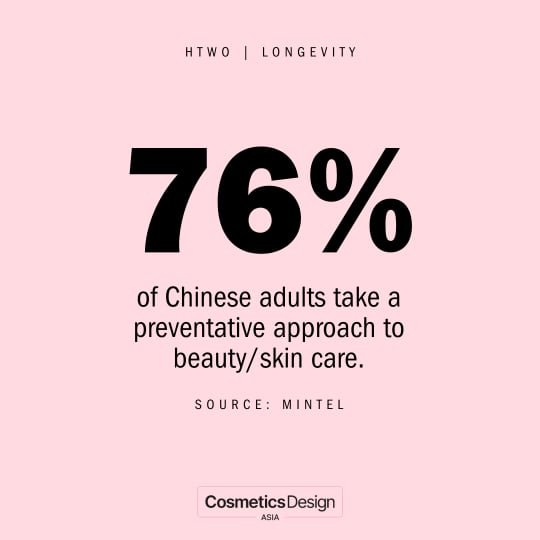
These nine hallmarks are considered “the most impactful and relevant for skin” and are intrinsically interconnected.
“We have built all this knowledge within this cloud of biomarkers that help researchers to identify the best active ingredients based on these nine hallmarks of ageing… What we aim to do is manage skin trajectories – this is the really big change. We cannot act on time itself, but biology is malleable,” said Aguilar.
In January, L’Oréal’s venture capital fund, BOLD, invested in Timeline, a Swiss biotech firm that developed a proprietary molecule, Mitopure, that recycles and rejuvenates ageing mitochondria.
Understanding mitochondrial dysfunction is one of the key areas L’Oréal is focusing on in terms of research.
“This is really one of the hallmarks, which is key and demonstrated to be associated with biological change than ageing,” said Aguilar.
With Timeline, the team is current assessing Mitopure, also known as Urolithin A (UA), which was initially developed to help muscle strain.
“We are currently evaluating the benefits of this kind of molecule on skin, because we know that’s one of the key biological damages are related to mitochondrial dysfunction. We really want to see how UA is changing the skin trajectories by correcting this mitochondrial dysfunction,” said Aguilar.
He added that the other area of focus is on senescence and senescent cells.
“So this is quite a new, interesting topic where you see more ingredients popping up in the medical evaluations. And for us, it’s also one of the key topics we are investing in to get access to new molecule in order to reset the visible signs of aging at that time.”
Aguilar also told us that L’Oréal is “considering evaluating supplements” as it pursues a more integrative approach.
Diagnostics and personalisation
L’Oréal aims to give consumers the means to determine the future of their skin.
“Their health is in their hands, and this is really a changing paradigm in terms of managing skin care tomorrow,” said Aguilar.
At the crux of this is diagnostics, which led L’Oréal to unveil Cell BioPrint at CES 2025 in January. The device claims to provide personalised skin analysis in just five minutes.
Cell BioPrint was developed in partnership with Korean startup NanoEnTek. The measurements are determined by the measurement of protein on the skin.
“We have published scientific papers that show that the thresholds of these proteins are correlated with accelerated ageing or decelerated ageing,” said Aguilar.
The device is able to determine the skin’s biological age and predict how it will respond to certain active ingredients. Additionally, it can predict potential issues before they become visible, allowing users to take proactive action to protect their skin.
L’Oréal envisions a future where diagnostics are readily available for consumers, be it at home or in stores.
“Of course, this is an emerging field, and we are conducting a pilot with Cell BioPrint. As we gather more data in the future, we will be able to provide even more accurate recommendations for consumers. This is the path forward—technology and data will be key in delivering the right products to consumers,” said Aguilar.
Already wearable health and fitness trackers like the Apple Watch or the Aura Ring becoming more ubiquitous.
“We are seeing that more people looking at how to measure and track their health themselves,” said Houe.
“I think the industry standard has shifted from treatment to prevention. There’s more focus and interest in preventative measures. Like in medicine and preventative medicine, its more than treating the disease, it’s about how to optimise health with a healthy routine with fitness and nutrition as a more holistic approach.”
Aguilar added that such devices and tool are also important to prove efficacy to consumers.
“One of the challenges we are dealing with preventative solutions is showing consumer that we are acting deep in their skin without them able to see any visual benefits. Biology is not usually visible and what we need to do is make the invisible visible.
“This is exactly what Cell BioPrint does, it shows that when they apply products, they concretely see a change in their biology. What’s coming next is developing more tools, devices that will help the consumer see that they are on the right track and see how they are personally managing the future of their skin health.”
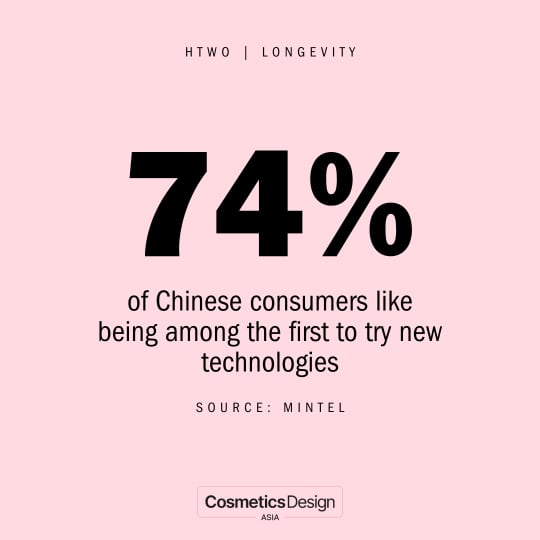
According to Mintel’s 2025 Global Beauty and Personal Care Trends report, consumers are embracing a work smart approach to beauty. This means leverage technology like artificial intelligence (AI) for result-oriented beauty and long-term skin health.
“Consumers will no longer work hard on their beauty routines but rather work smarter,” said the report.
It highlighted how in markets like China, brands are offering personalisation services to differentiate themselves.
“For instance, Pola’s APEX skin care range, relaunched in 2024, uses Motion Scan Technology and a vast database of skin data to offer highly customised solutions, underscoring the importance of precision and efficacy in modern beauty.”
Skin, mind, mood
With longevity, the emphasis is always on holistic solutions because it focuses on overall well-being rather than just addressing isolated issues. What makes the beauty industry so well-placed to talk about longevity is beauty is a form of self-care.
“The skin is the biggest organ of the body, and it has a very high concentration of pain receptors. It gets irritated easily, it communicates with its environment,” said Dr Coralie Ebert, PhD, co-founder and CTO of AI startup MeNow.
“We have seen that the placebo effect can be very strong. We’ve seen placebo effect on real diseases like cancer. We need to understand this more so we can play with it and have a big impact on health.”
In recent years, there has bee more research about how treating your skin right and feeling good about your skin appearance can boost your mental health. This is set the stage perfectly for the rise of neurocosmetics.
“Neurocosmetics offer a compelling solution by addressing both physical skin health and emotional well-being, reducing stress and enhancing mood through scientifically backed ingredients,” said Jaiswal.
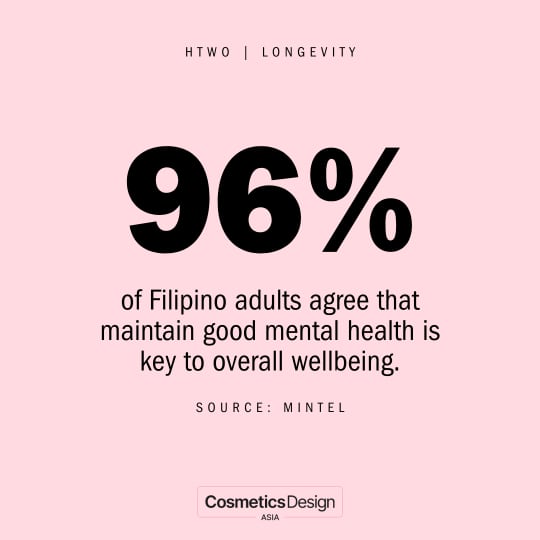
“We know a lot of skin conditions like eczema and psoriasis are affected by the psychological. When you’re stressed, it manifests in your skin. This is a really important field and while its nascent, it’s coming up.”
Jaiswal’s brand, Justhuman, utilises neuropeptides, which “are produced by the body and bind to receptors that regulate cell renewal and inflammation, stimulating the production of collagen and hyaluronic acid”.
“Neurocosmetics is new and coming to the forefront. It’s about applying something topically that will not just have a physical benefit but will also bring about better mood and overall wellbeing,” she said.
This approach to skin care becomes even more important with mature women, said Jaiswal.
“When you are hitting your 40s, you are in either state of perimenopause or going into menopause. And it’s not just a physical thing. it’s also a mental thing. “Women do feel irritable. Women do get brain fog. You feel like you’re losing your memories sometimes, and all of these things are on a mental level.
“We are targeting neurocosmetics to women of this stage of life, which are over 40 years old, then we said, well, it cannot just be about skin. It needs to be performing at a level where we are able to make you feel good as well.”
Justhuman products are developed by formulators in the US and South Korea. According to Jaiswal, formulation development can take 12 to 18 months to complete.
“It’s because of all the various iterations we have to make… there’s a sensorial element to it and a science element to it… Aroma is extremely important because you can’t cut off your olfactory senses when you’re trying to be holistic. We are very aroma forward in that sense, because we know it’s a trigger point for people to experience different kinds of emotions.”
Want to learn more about longevity in beauty? Check out our free on-demand webinar Redefining Ageing: Science, Trends, Innovations, and the Quest for Longevity, with more insights from the experts featured in this article.
Going back to our roots
The longevity movement has spurred a lot of research and innovation, and it seems like we are leaping into a new future of beauty. While industry players are looking at developing cutting edge technology and diving into a new area of science, there are those who believe we can look back to find the answers.
“My tagline is innovating from tradition,” said Andrea Taimana, founder of Taimana beauty, a New Zealand-based skin care brand that utilises native plants and botanicals.
Taimana specialises in researching Te Rongoā Māori, a traditional healing system that uses natural botanicals and applying them to cosmetics.
“Every culture has their own traditional knowledge and medicine… We are now more scientifically advanced, our biotech is more advanced, and now we can merge traditional knowledge into modern science,” said Taimana.
One challenge with natural solutions is the perception that they are not very effective products.
“It’s very interesting because we are witnessing 1000-year-old knowledge being applied to treat specific, very complex diseases or health problems with a massive success. It was very hard to explain back then why that happened. Now we have more tools in hand to create effective solutions, naturally.
“It’s true that natural products are perceived to be not as effective and there are some brands in the market, natural products, that are not very effective. What’s important in modern cosmetic science is that we back it up clinical data. So, we need to understand and explain modes of action.
“At Taimana, we do not only believe, but we have proven, by multiple clinical studies on raw materials, on botanical extracts, as well as on finished formulations, that completely natural cosmetic products can be as effective as something that was developed by maybe isolated, synthetically produced actives.”
Taimana describes what she does as “biohacking” New Zealand botanicals and her research into longevity solutions is entirely inspired by the natural wonders of the land and its traditions.
“When I moved to New Zealand, I realised that there was some very interesting natural phenomenon going on with biodiversity of New Zealand botanicals that also reflects the longevity. What I look at is harnessing biodiversity and mimicking nature’s blueprints on how to obtain the botanicals to develop effective cosmetic actives that can help protect, our healthy cells that would extend the lifecycle of the cells that would prolong longevity.”
In a convergence of tradition and technological advancement, MeNow is using cutting edge tech not only to better understand but preserve ancient knowledge.
Co-founded by Ebert and CEO Dr Hilla Ben-Hamo, the startup sought to use AI to explore the vast potential of natural compounds. The firm has worked with companies like Taimana Beauty as well as Green Mountain Biotech, which it helped to understand plants from Traditional Chinese Medicine (TCM).
“We did some massive screening using our AI system on traditional plants. We saw that there are incredible bioactives, incredible effects. So far, botanicals haven’t been used as much as they should have, also because it’s very complicated to understand… The ways that plants are extracted traditionally are not the ways that we will extract them today. And sometimes, because of this, you have a loss of effectiveness.”
With MeNow’s technology, researchers are able to identify the active molecules that are responsible for the effects, predict where in the plant you can find them, and what extraction methods would be best.
Longevity inclusivity
Most recently, Lancôme debuted the Longevity Soft Cream, which features what L’Oréal describes as a game-changing ingredient, Absolue PDRN. It is a DNA extraction from a rose, with trillions of DNA fragments. This powerful ingredient claims to target cells at their core and multiply mitochondria.
As the research progresses, Aguilar expects longevity solutions to become more inclusive and not just reserved for its most luxurious brands.
“Of course, this longevity area started with the high-end consumers, but as L’Oréal, we believe longevity is not restricted to a specific, social or economic category. Health is really a matter for everyone everywhere.
“It’s really important that we are developing affordable solutions that also match expectations from all categories. And because we are company distributing products in all categories, it’s also important for us to cascade and scale all innovations within all the brands that are addressing.
Aguilar highlighted Vichy’s Liftactiv Collagen 16 serum, with co-bonding technology. This innovation is a biohacking complex that sends an alert message to the skin, instructing it to repair itself that leads to the production of collagen and remodelling of the extracellular matrix.
As longevity comes into focus, Jaiswal believes the beauty industry “remains fixated on youth”
“This cognitive dissonance reinforces outdated beauty ideals, making it difficult for consumers to embrace aging as a natural, empowered transition rather than something to resist. At the same time, confirmation bias leads consumers to seek validation for the idea that youth equals beauty, further entrenching fear-based narratives around ageing.
She added that the focus must shift away from anti-ageing to pro-healthspan, emphasising the importance of factors such as barrier health and cellular function.
“Brands must also realign their marketing strategies to reflect this new perspective. Rather than positioning aging as a decline, beauty should celebrate resilience, vibrancy, and strength at every stage of life.”
Instead, brands should let scientific advancements “take centre stage” to offer consumers evidence-based solutions that support long-term skin health.
She concluded: “Ultimately, the future of beauty lies in empowerment, not fear. By embracing a pro-health, pro-resilience, and pro-longevity approach, the industry can redefine what it means to age beautifully—one that is driven by science, well-being, and a deep understanding of the connection between how we look, feel, and function over time.”


